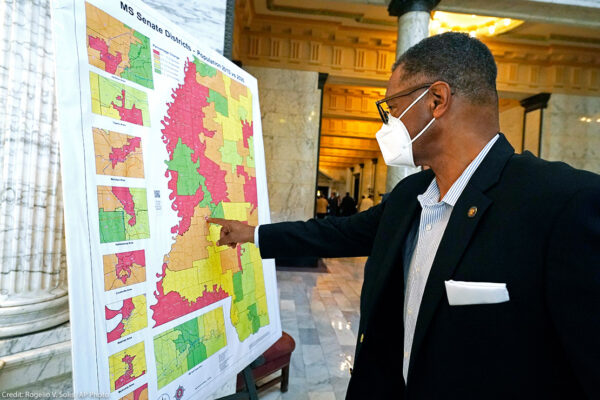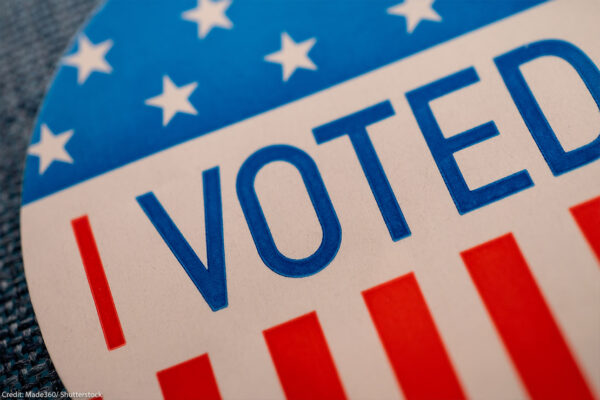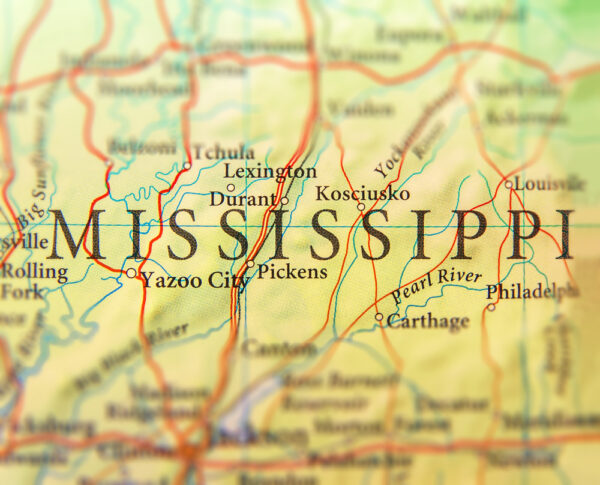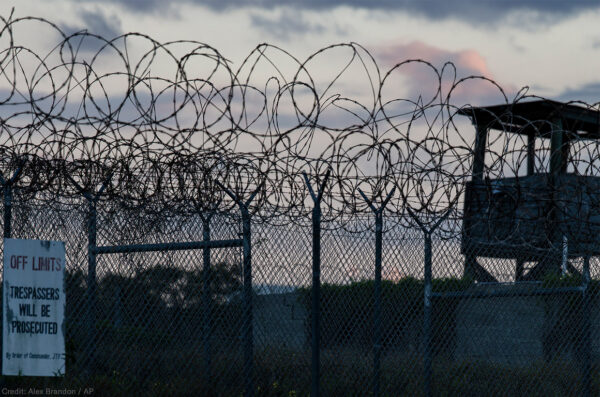Supreme Court Term 2025-2026
We’re breaking down the cases we've asked the court to consider this term.
Latest Case Updates
Ongoing
Updated November 5, 2025
Ongoing
Updated November 4, 2025
Ongoing
Updated October 21, 2025
Ongoing
Updated October 17, 2025
Featured
U.S. Supreme Court
Nov 2025

Voting Rights
Racial Justice
Allen v. Milligan
Whether Alabama’s congressional districts violate Section 2 of the Voting Rights Act because they discriminate against Black voters. We succeeded in winning a new map for 2024 elections which, for the first time, has two congressional district that provide Black voters a fair opportunity to elect candidates of their choosing despite multiple attempts by Alabama to stop us at the Supreme Court. Despite this win, Alabama is still defending its discriminatory map, and a trial was held in February 2025 to determine the map for the rest of the decade.
In May 2025, a federal court ruled that Alabama's 2023 congressional map both violates Section 2 of the Voting Rights Act and was enacted by the Alabama Legislature with racially discriminatory intent.
Washington, D.C.
Oct 2025

Voting Rights
League of Women Voters Education Fund v. Trump
On March 25, 2025, in a sweeping and unprecedented Executive Order, President Trump attempted to usurp the power to regulate federal elections from Congress and the States. Among other things, the Executive Order directs the Election Assistance Commission‚ÄĒan agency that Congress specifically established to be bipartisan and independent‚ÄĒto require voters to show a passport or other citizenship documentation in order to register to vote in federal elections. If implemented, the Executive Order would threaten the ability of millions of eligible Americans to register and vote and upend the administration of federal elections.
On behalf of leading voter registration organizations and advocacy organizations, the ļž–” ”∆Ķ and co-counsel filed a lawsuit to block the Executive Order as an unconstitutional power grab.
U.S. Supreme Court
Oct 2025

Voting Rights
State Board of Election Commissioners v. Mississippi State Conference of the NAACP
Mississippi has a growing Black population, which is already the largest Black population percentage of any state in the country. Yet. Black Mississippians continue to be significantly under-represented in the state legislature, as Mississippi’s latest districting maps fail to reflect the reality of the state’s changing demographics. During the 2022 redistricting process, the Mississippi legislature refused to create any new districts where Black voters have a chance to elect their preferred representative. The current district lines therefore dilute the voting power of Black Mississippians and continue to deprive them of political representation that is responsive to their needs and concerns, including severe disparities in education and healthcare.
U.S. Supreme Court
Oct 2025

Voting Rights
Louisiana v. Callais (Callais v. Landry)
Whether the congressional map Louisiana adopted to cure a Voting Rights Act violation in Robinson v. Ardoin is itself unlawful as a gerrymander.
Missouri
Sep 2025

Voting Rights
Wise v. Missouri
In unprecedented fashion, the State of Missouri has redrawn the district lines used for electing members of Congress for a second time this decade. These new district lines are gerrymandered and will harm political representation for all Missourians, particularly Black residents in Kansas City, who have been divided along racial lines.
Mississippi
Aug 2025

Voting Rights
White v. Mississippi State Board of Elections
District lines used to elect Mississippi’s Supreme Court have gone unchanged for more than 35 years. We’re suing because this dilutes the voting strength of Black residents in state Supreme Court elections, in violation of the Voting Rights Act and the U.S. Constitution.
Louisiana
Aug 2025

Voting Rights
Nairne v. Landry
Nairne v. Landry poses a challenge under Section 2 of the Voting Rights Act of 1965 to Louisiana’s House and Senate legislative maps on behalf of plaintiff Black voters and Black voters across the state.
Ohio
Jul 2025

Reproductive Freedom
Planned Parenthood Southwest Ohio Region et al., v. Ohio Department of Health, et al.
The ļž–” ”∆Ķ, the ļž–” ”∆Ķ of Ohio, Planned Parenthood Federation of America, the law firm WilmerHale, and Fanon Rucker of the Cochran Law Firm, on behalf of Planned Parenthood Southwest Ohio Region, Planned Parenthood of Greater Ohio, Preterm-Cleveland, Women‚Äôs Med Group Professional Corporation, Dr. Sharon Liner, and Julia Quinn, MSN, BSN, amended a complaint in an existing lawsuit against a ban on telehealth medication abortion services to bring new claims under the Ohio Reproductive Freedom Amendment, including additional challenges to other laws in Ohio that restrict access to medication abortion in the state.
U.S. Supreme Court
Apr 2024

Reproductive Freedom
Idaho and Moyle, et al. v. United States
Idaho and Moyle, et al. v. United States was appealed to the U.S. Supreme Court by Idaho politicians seeking to disregard a federal statute ‚ÄĒ the Emergency Medical Treatment and Labor Act (EMTALA) ‚ÄĒ and put doctors in jail for providing pregnant patients necessary emergency medical care. The Supreme Court heard oral arguments on this case on April 24, 2024. The Court‚Äôs ultimate decision will impact access to this essential care across the country.
All Cases
1,624 Court Cases

Minnesota Supreme Court
Jul 2025
Free Speech
Energy Transfer LP v. Greenpeace International, Unicorn Riot
This case in the Minnesota Supreme Court asks whether the MFFIA's protections apply to newsgatherers even if they are alleged to have engaged in trespassing while newsgathering. The ļž–” ”∆Ķ‚Äôs State Supreme Court Initiative, alongside the ļž–” ”∆Ķ of Minnesota and law firm Biersdorf & Associations, filed a brief representing Unicorn Riot, a media organization that covered protests of the Dakota Access Pipeline. The brief argues that MFFIA and constitutional reporter‚Äôs privileges, under both the U.S. and Minnesota constitutions, protect Unicorn Riot from having to comply with Energy Transfer‚Äôs subpoenas.
Explore case
Minnesota Supreme Court
Jul 2025

Free Speech
Energy Transfer LP v. Greenpeace International, Unicorn Riot
This case in the Minnesota Supreme Court asks whether the MFFIA's protections apply to newsgatherers even if they are alleged to have engaged in trespassing while newsgathering. The ļž–” ”∆Ķ‚Äôs State Supreme Court Initiative, alongside the ļž–” ”∆Ķ of Minnesota and law firm Biersdorf & Associations, filed a brief representing Unicorn Riot, a media organization that covered protests of the Dakota Access Pipeline. The brief argues that MFFIA and constitutional reporter‚Äôs privileges, under both the U.S. and Minnesota constitutions, protect Unicorn Riot from having to comply with Energy Transfer‚Äôs subpoenas.

Florida
Jul 2025
Immigrants' Rights
FLORIDA IMMIGRANT COALITION v. UTHMEIER
The ļž–” ”∆Ķ of Florida, ļž–” ”∆Ķ Immigrants‚Äô Rights Project, Americans for Immigrant Justice, and the Community Justice Project filed a federal class action lawsuit challenging Florida‚Äôs new extreme anti-immigrant law, Senate Bill 4C (SB 4C), which authorizes state and local law enforcement to imprison people based on their manner of entering the country ‚ÄĒ powers the Constitution reserves exclusively to the federal government.
Explore case
Florida
Jul 2025

Immigrants' Rights
FLORIDA IMMIGRANT COALITION v. UTHMEIER
The ļž–” ”∆Ķ of Florida, ļž–” ”∆Ķ Immigrants‚Äô Rights Project, Americans for Immigrant Justice, and the Community Justice Project filed a federal class action lawsuit challenging Florida‚Äôs new extreme anti-immigrant law, Senate Bill 4C (SB 4C), which authorizes state and local law enforcement to imprison people based on their manner of entering the country ‚ÄĒ powers the Constitution reserves exclusively to the federal government.

U.S. Supreme Court
Jul 2025
National Security
Connell v. CIA ‚Äď FOIA Lawsuit Seeking Records ļž–” ”∆Ķ CIA ‚ÄúOperational Control‚ÄĚ Over a Detention Facility at Guant√°namo Bay
The CIA has refused to disclose whether it has records about its operational control over Camp VII, a detention facility at Guantánamo Bay. Given the extensive public record about the CIA’s connection to Camp VII, its refusal to acknowledge that it has responsive records both violates the law and defies common sense. At stake is whether the court will reject the CIA’s version of official secrecy and call out its fiction of deniability or whether it will allow that fiction to stand.
Explore case
U.S. Supreme Court
Jul 2025

National Security
Connell v. CIA ‚Äď FOIA Lawsuit Seeking Records ļž–” ”∆Ķ CIA ‚ÄúOperational Control‚ÄĚ Over a Detention Facility at Guant√°namo Bay
The CIA has refused to disclose whether it has records about its operational control over Camp VII, a detention facility at Guantánamo Bay. Given the extensive public record about the CIA’s connection to Camp VII, its refusal to acknowledge that it has responsive records both violates the law and defies common sense. At stake is whether the court will reject the CIA’s version of official secrecy and call out its fiction of deniability or whether it will allow that fiction to stand.

New Hampshire
Jul 2025
Immigrants' Rights
Barbara v. Donald J. Trump
Explore case
New Hampshire
Jul 2025

Immigrants' Rights
Barbara v. Donald J. Trump

Wisconsin Supreme Court
Jul 2025
Civil Liberties
+2 Issues
State v. K.R.C.
This case asks whether a 12-year-old boy was in custody and entitled to Miranda warnings during a closed-door police interrogation by a school resource officer in the school building. The court of appeals held that he was not in custody, not entitled to Miranda warnings, and voluntarily incriminated himself. The ļž–” ”∆Ķ‚Äôs State Supreme Court Initiative and the ļž–” ”∆Ķ of Wisconsin filed an amicus brief arguing that admitting the boy‚Äôs statements into evidence not only violated the Fifth Amendment to the U.S. Constitution but Article I, Section 8 of the Wisconsin Constitution, and urging the Wisconsin Supreme Court to rest its decision on the state charter to better protect Wisconsinites‚Äô civil liberties.
Explore case
Wisconsin Supreme Court
Jul 2025

Civil Liberties
+2 Issues
State v. K.R.C.
This case asks whether a 12-year-old boy was in custody and entitled to Miranda warnings during a closed-door police interrogation by a school resource officer in the school building. The court of appeals held that he was not in custody, not entitled to Miranda warnings, and voluntarily incriminated himself. The ļž–” ”∆Ķ‚Äôs State Supreme Court Initiative and the ļž–” ”∆Ķ of Wisconsin filed an amicus brief arguing that admitting the boy‚Äôs statements into evidence not only violated the Fifth Amendment to the U.S. Constitution but Article I, Section 8 of the Wisconsin Constitution, and urging the Wisconsin Supreme Court to rest its decision on the state charter to better protect Wisconsinites‚Äô civil liberties.
